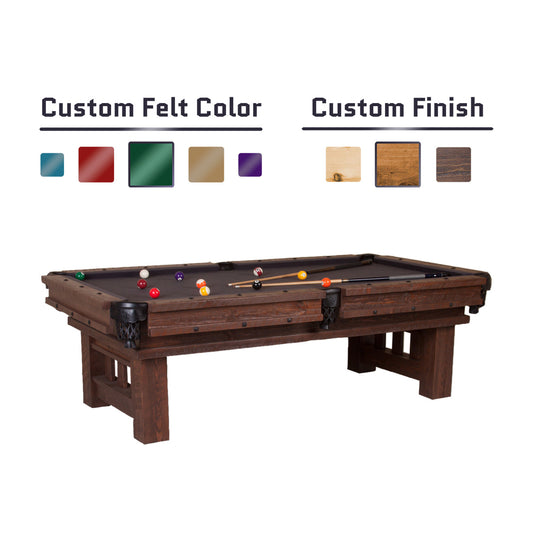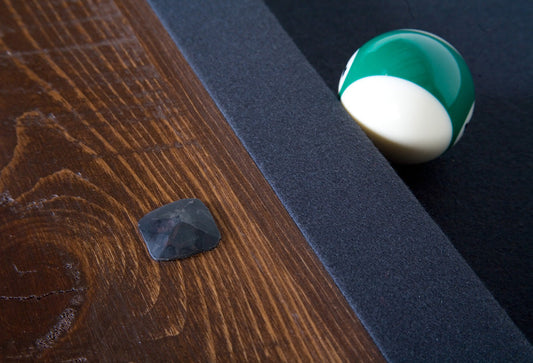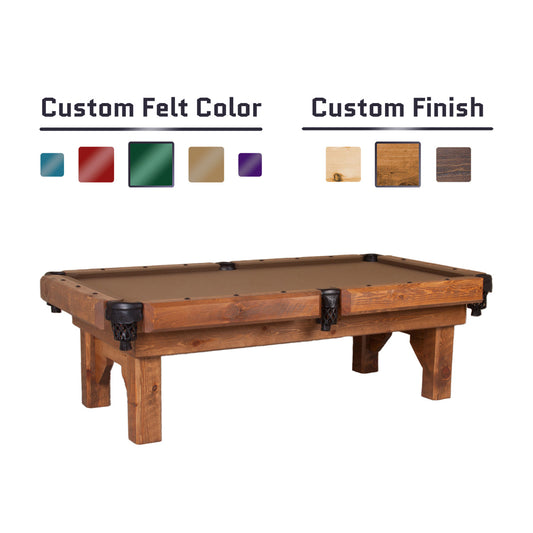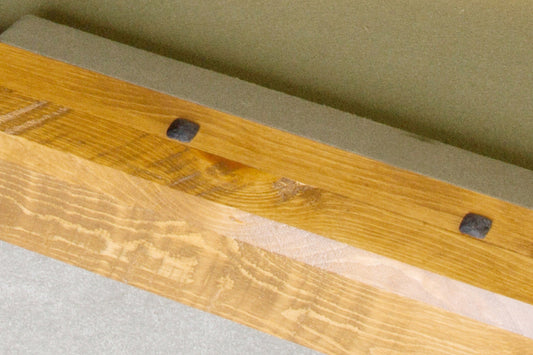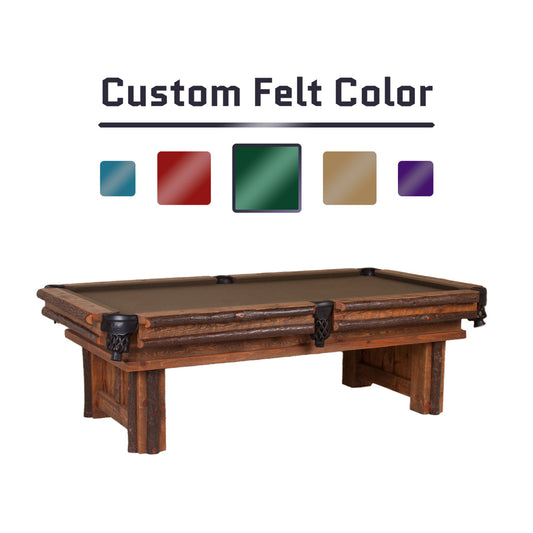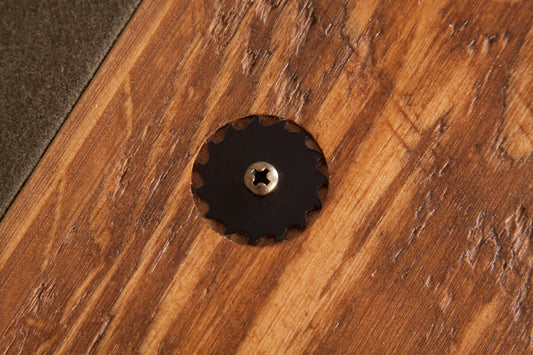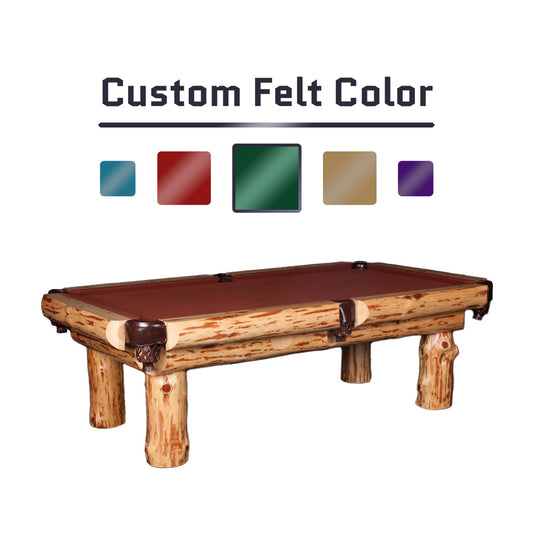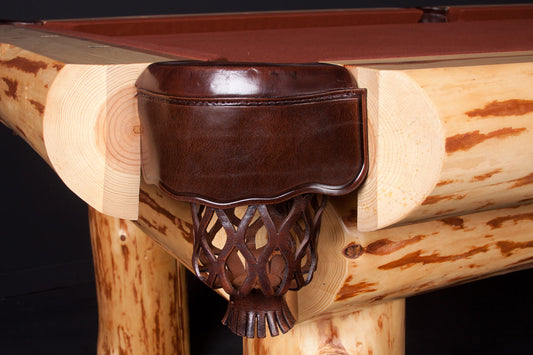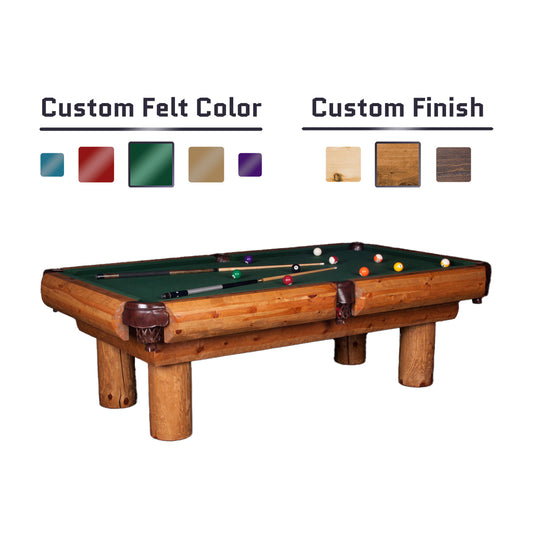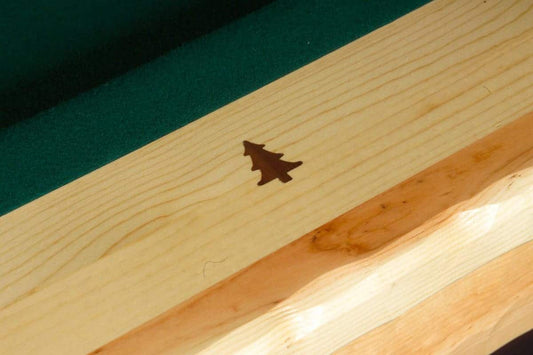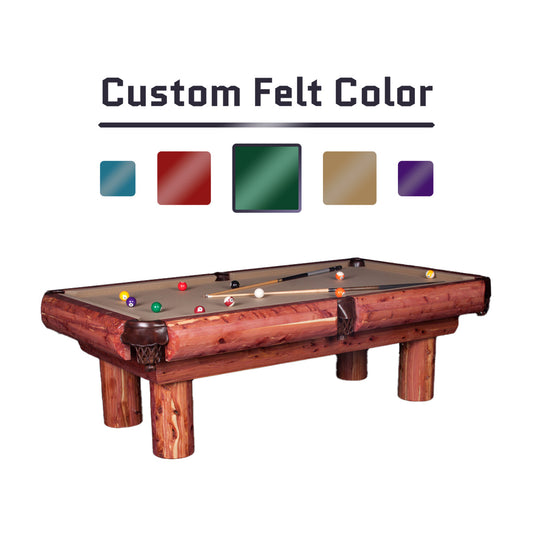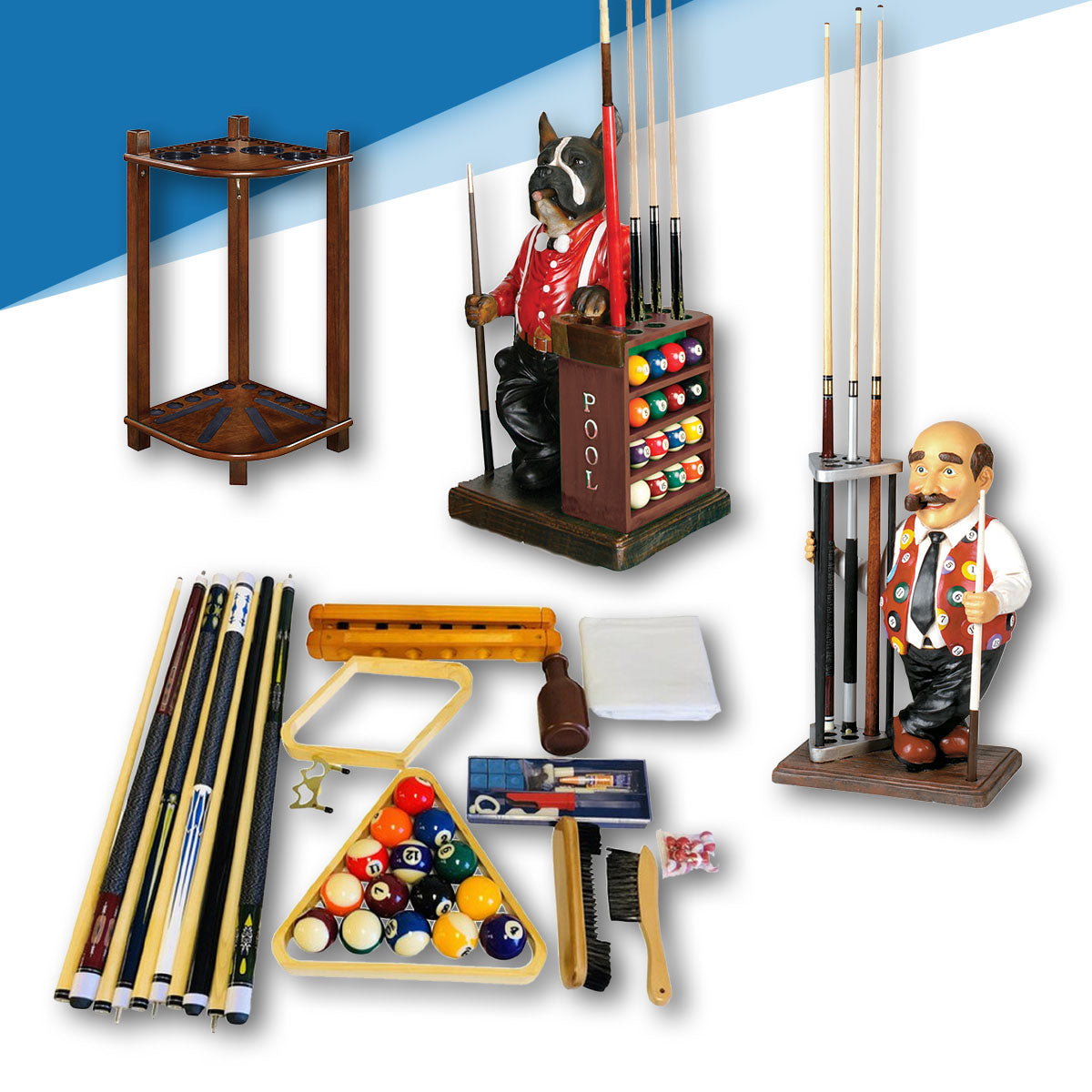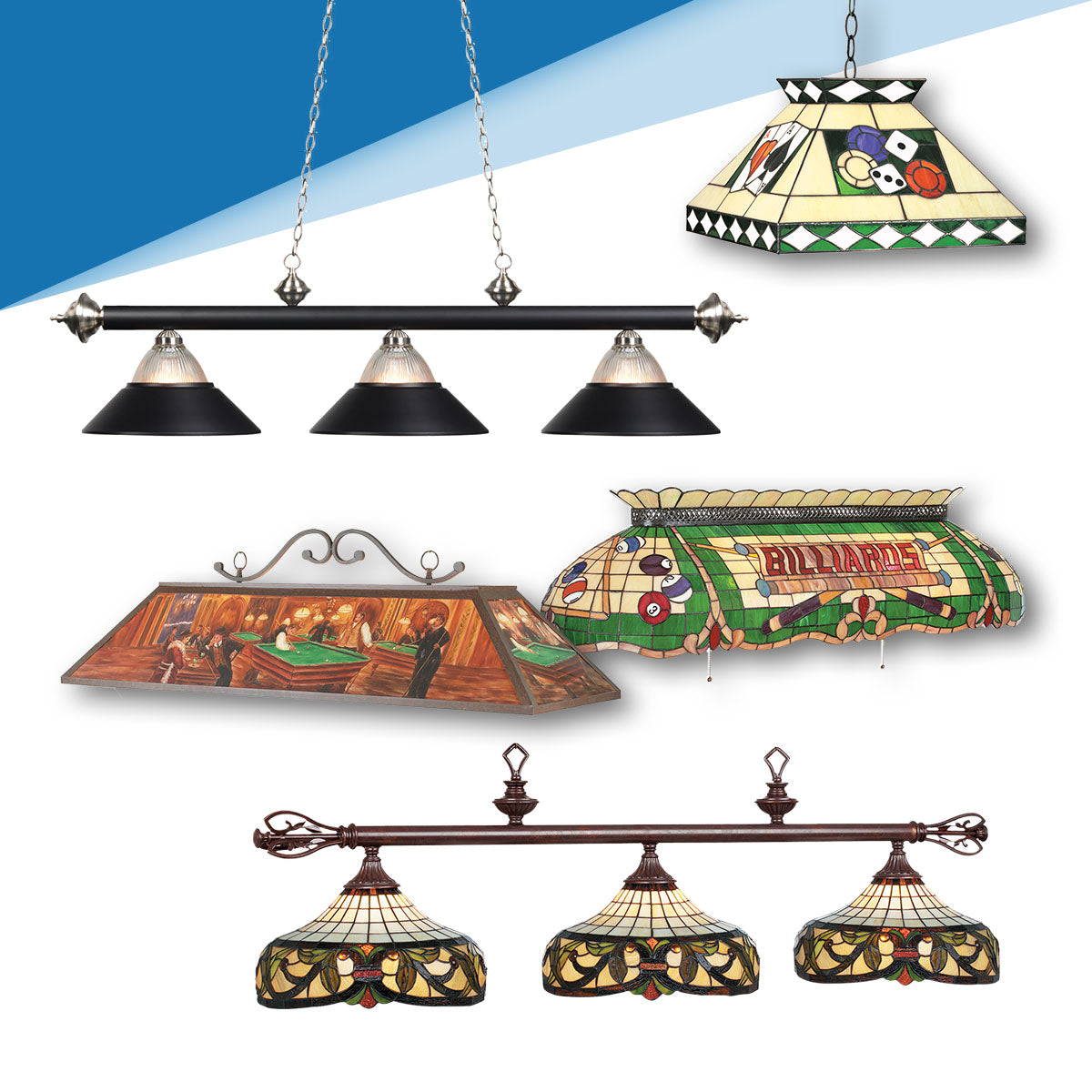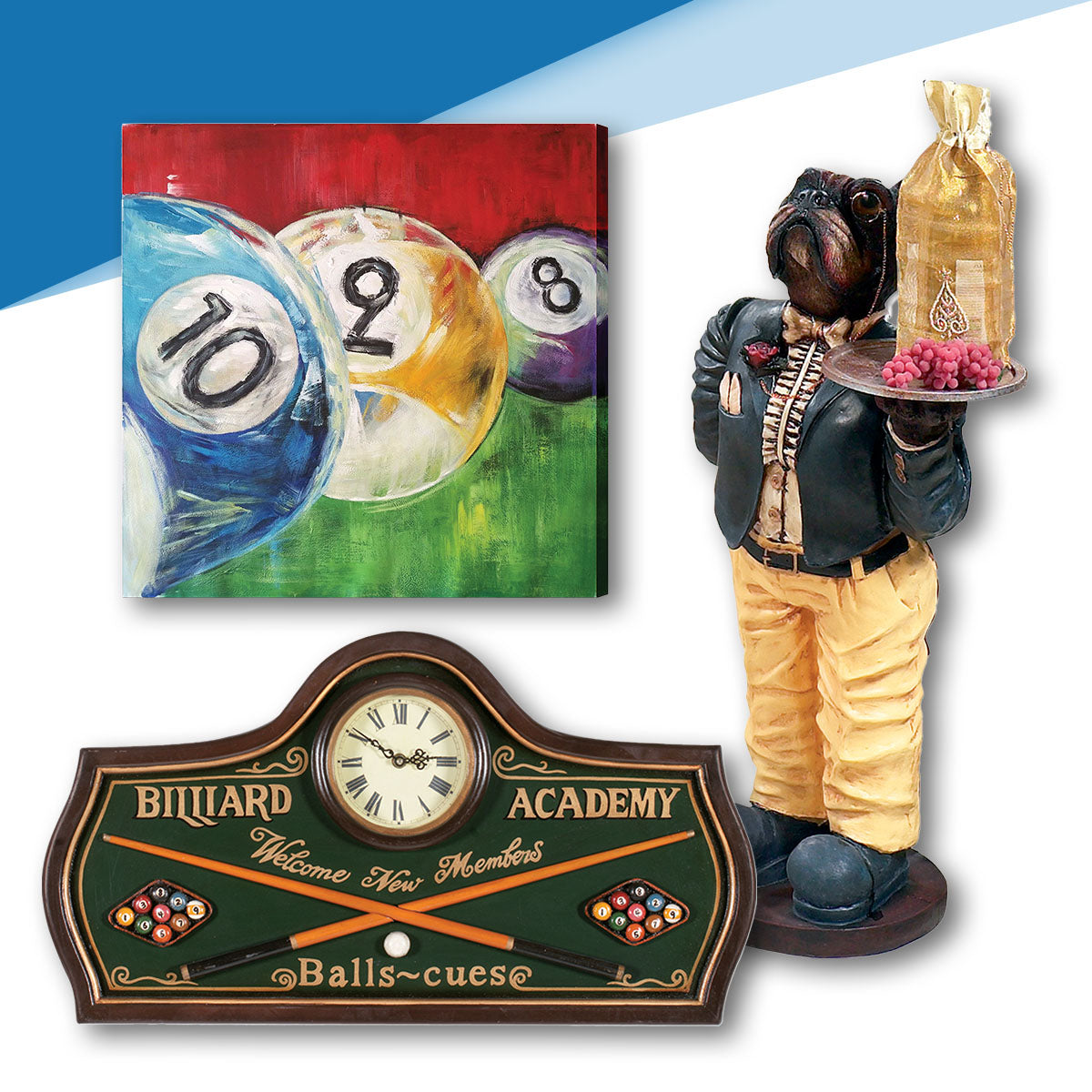Written by Daddy Cappuccino
8-minute read
Alright, folks, let's clear the cue ball and chalk up for an engaging match of knowledge. You've probably heard the terms "billiards" and "pool" thrown around in the realm of cue sports, but do you know the difference? It's time to rack up the facts and break down the distinctions between these two classic games. Billiards and pool might seem like peas in a pod, but they've got their own unique flavors.
In this article, we're going to line up the shots, chalk up some understanding, and help you decide whether you're playing billiards or shooting pool. So, grab your cue, and let's dive into the intriguing world of cue sports.
Table of Contents
What is Billiards?
Now, before we jump into the ring to watch this epic battle between billiards and pool, let's give billiards its due introduction.
Billiards, the Elegant Grandfather of Cue Sports
Imagine a lush, wood-paneled room, dimly lit with a warm, inviting glow. In one corner, a beautifully crafted billiards table stands majestically, adorned with pristine green felt and polished wooden rails. It exudes an air of sophistication that instantly transports you to a different era.
Billiards, often referred to as "carom" or "carom billiards", is the seasoned elder in the world of cue sports. Unlike pool, billiards typically doesn't involve pockets. Instead, it's all about finesse, precision, and controlled elegance.
The Objective of Billiards
The objective in billiards is to score points by using your cue ball to strike both the opponent's cue ball and the target ball, often called the "object ball" (both the opponent's cue ball and the target ball can be referred to as "object balls"). This is done in a prescribed manner, where you need to make sure your cue ball hits the object ball and then your opponent's cue ball in a particular sequence. Points are scored based on the number of "caroms" you achieve, which is essentially the number of successful ball-to-ball contacts.
Variations of Billiards
Billiards isn't a one-size-fits-all game. There are various versions, each with its own set of rules and strategies. Three of the most common variations include:
- Straight Rail: This is the most straightforward version of billiards. In straight rail, the objective is to score points by striking the player's assigned cue ball with a cue stick so it makes contact with both the opponent's cue ball and the object ball in the same stroke, known as a carom. There is no requirement for hitting cushions in this version of the game.
- Three-Cushion: A more intricate and artistic form, three-cushion billiards requires to carom the cue ball off both object balls while contacting the rail cushions at least three times before contacting the second object ball.
- Artistic Billiards: As the name suggests, this version emphasizes the artistry of the game. Players perform specific shots with flair, demonstrating their mastery over the cue ball's movement.
The Timeless Charm of Billiards
Billiards is a game that demands patience, skill, and an appreciation for the finer points of cue sports. It's often enjoyed in quiet, dignified settings where players engage in thoughtful battles of strategy and precision. While it may lack the rapid action of pool, billiards has an enduring charm that captivates those who seek a more refined cue sport.

So, that's billiards in a nutshell, our elegant elder in the world of cue sports. But the battle is far from over as we step into the world of pool, a game with its own set of thrills and spills. Grab your cue, and let's venture further into this captivating contest of Billiards vs Pool.
What is Pool?
Now that we've got a good handle on billiards let's switch our focus to its well-known cousin, pool. Pool, often referred to as "pocket billiards," is a cue sport that shares some similarities with billiards but also has some distinct differences that set it apart.
Key Characteristics of Pool:
- Pocketed Shots: In pool, the primary goal is to pocket balls into designated pockets on the table. Each player or team usually has a set of balls to pocket (either stripes or solids), along with the black 8-ball. The player who legally pockets the 8-ball after all their designated balls are pocketed wins the game.
- Cushion Play: Unlike some forms of billiards, pool tables have cushions along the edges, and players often use these cushions to execute shots. Skilled pool players utilize the cushion's angles to position the cue ball for their next shot, adding a layer of strategy to the game.
- Variety of Games: Pool encompasses a wide range of game variations, with eight-ball and nine-ball being two of the most popular. Eight-ball is played with a full rack of 15 balls, including the black 8-ball, while nine-ball is played with just nine balls numbered 1 through 9. The rules and objectives can vary significantly between these game variations, adding diversity and excitement to the world of pool.
- Accessible to All: Pool is often seen as a more accessible cue sport than billiards. It's commonly played in bars, clubs, and recreation centers, making it a social and approachable game for players of all skill levels.
In essence, while both billiards and pool involve cue sports played on a rectangular table covered with cloth, the key distinction lies in the objectives: sinking balls into pockets in pool versus scoring caroms in billiards. So, whether you're aiming for the 8-ball in the corner pocket or executing a precise carom, cue sports offer a world of entertainment and skill.

Now that we've explored the basics of billiards and pool, let's compare them directly.
Key Differences
Billiards and pool may seem similar at first glance, but as we delve deeper, the distinctions become clearer than a freshly chalked cue tip. Let's break down the key differences between these two cue sports, so you can tell your caroms from your combos.
1. Objective: Aiming for Glory
- Billiards: In billiards, the name of the game is precision. Your primary objective? To score points through artful execution of carom shots, where the cue ball elegantly pirouettes, making contact with both the opponent's cue ball and the object ball in the same stroke. There are no pockets involved in billiards. It's like a ballet on felt.
- Pool: Pool, on the other hand, is a pocket lover's paradise. The objective here is to pocket balls into designated pockets on the table. The game's objective varies depending on the specific pool game being played, such as eight-ball or nine-ball, but the common thread is sinking balls into pockets with style.
2. Table Size: The Big vs. the Compact
- Billiards: Billiards tables are typically grand affairs, with dimensions ranging from 9 to 10 feet in length. The larger size provides ample room for those long, dramatic carom shots. It's like the Broadway stage of cue sports.
- Pool: Pool tables come in various sizes, but the most common ones are 7, 8, and 9 feet in length. Smaller tables are generally used for popular bar games like eight-ball. It's more of an off-Broadway vibe.
3. Ball Count: By the Numbers
- Billiards: A billiards game typically involves three balls: two cue balls (one for each player) and an object ball. The simplicity of the setup allows for intricate carom shots that are all about angles and geometry.
- Pool: Pool games employ a more extensive set of balls, often 15 in total for eight-ball, and just 9 for nine-ball. These games feature a mix of stripes and solids, with the black 8-ball being a common fixture. It's like a colorful ensemble cast.
4. Cushions and Pockets: The Edges Matter
- Billiards: Billiards tables do not have pockets, but don't think they're plain. Players rely solely on carom shots that involve cushions or rails. The table's edges are essential in creating those mesmerizing ricochets.
- Pool: Pool tables have pockets, usually six in total, located at the corners and sides of the table. The objective is to pocket balls into these designated pockets with accuracy that would make a sharpshooter envious.
5. Scoring: Keeping Score
- Billiards: Scoring in billiards is all about finesse and precision. Points are earned through successful carom shots. There are no fixed target numbers or ball orders. It's a canvas for the artist within.
- Pool: Each pool game has its own scoring rules. For instance, eight-ball requires players to pocket all their designated balls and then the 8-ball, while nine-ball follows a numerical order with points associated with each ball. It's a game where every ball has its role.
6. Table Usage: Where You'll Find Them
- Billiards: Billiards tables are often found in more formal and competitive settings. The precision required for carom shots makes it a game of skill and strategy, best enjoyed in a refined atmosphere.
- Pool: Pool is the life of the party, found in bars, clubs, and recreational settings. It's a popular social activity, and there are numerous variations, making it accessible to players of varying skill levels. It's the cue sport of the people.
These differences paint a vivid picture of the contrasting worlds of billiards and pool. Whether you're captivated by the elegant dance of carom shots or the thrilling plunge of pocketed balls, both cue sports offer unique experiences for players to enjoy.
Which One Should You Play?
Now that we've dissected the worlds of billiards and pool, you might be wondering, "Which one should I dive into?" The answer, of course, depends on your preferences, skill level, and the kind of experience you're seeking.
When to Choose Billiards:
When to Choose Pool:
In the end, the choice between billiards and pool comes down to your personal preferences. Some players enjoy the serene precision of billiards, while others thrive in the lively, social world of pool. And, of course, there's nothing stopping you from enjoying both cue sports, each offering its unique flavor of excitement and challenge.
Conclusion
In the timeless debate of billiards vs. pool, there's no definitive winner – only personal preferences and the joy of the game. Whether you're captivated by the elegance of billiards or the sociable charm of pool, the cue sport world offers a diverse canvas for your cues, chalk, and cue balls.
So, pick your poison, or better yet, savor both. Whether it's the precision of billiards or the camaraderie of pool, cue sports promise a cue-stick adventure like no other. Remember, the most crucial shot is the one you enjoy the most.
Cue up, break, and let the games begin. Your next cue sport adventure awaits.
🍻 Cheers to your billiards journey and see you in the next article!



